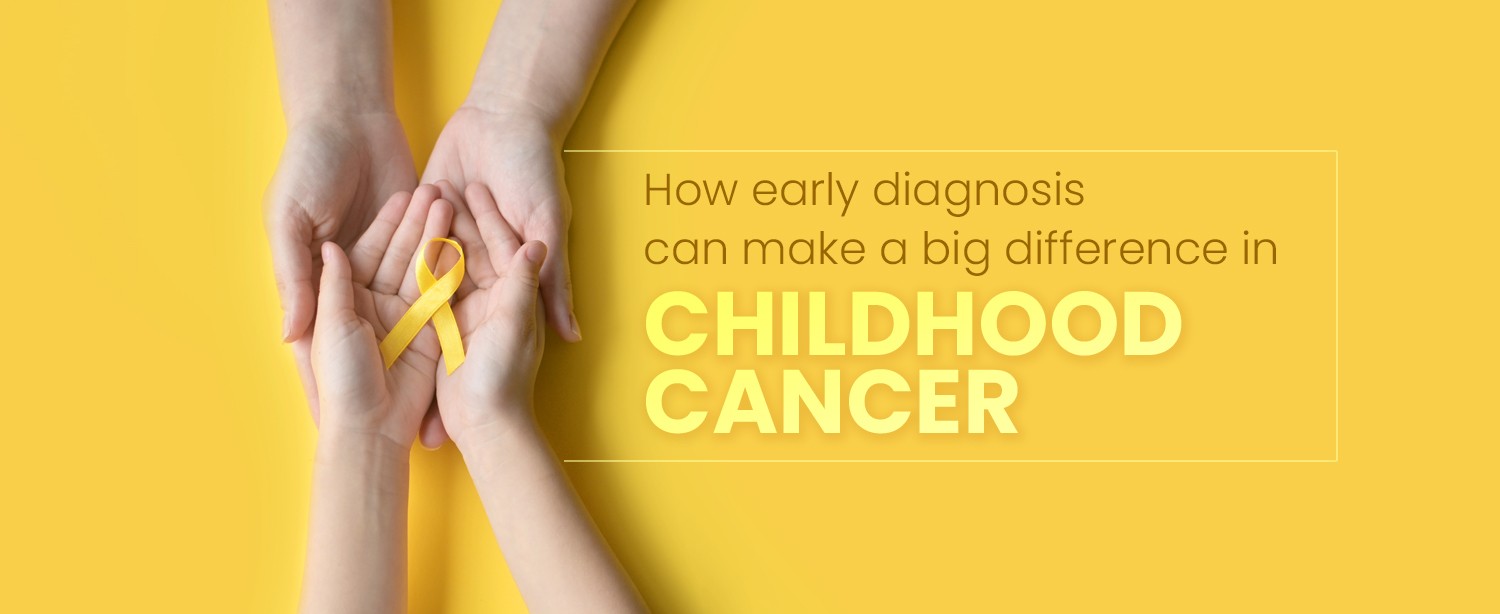In India, around 75,000 children and adolescents are diagnosed with cancer each year, making up about 4% of all cancers among individuals aged 0–14 years. While these statistics may seem daunting, the reality is that childhood cancer is both rare and often curable if detected early. This fact underscores the critical importance of early diagnosis, which can significantly enhance treatment outcomes and improve survival rates.
Table of Contents
Recognizing the Signs and Symptoms
Understanding and recognizing the symptoms of childhood cancer is pivotal for early diagnosis. Some of the symptoms that should prompt concern include:
- Unexplained Weight Loss
Rapid weight loss without any clear reason can be a warning sign. - Persistent Fever
A fever that doesn’t respond to typical treatments or persists longer than usual could be indicative of an underlying issue. - Abnormal Lumps or Swellings
Noticeable lumps in the neck, abdomen, or groin are concerning and should be evaluated. - Unusual Bruising or Bleeding
If a child frequently bruises or bleeds, including bleeding gums or nosebleeds, it could suggest a more serious condition like leukemia. - Bone Pain
Persistent pain in bones or joints, which doesn’t improve with rest, might be a sign of bone cancer or leukemia. - Chronic Fatigue
If a child is constantly tired, impacting their daily activities, it could be a sign of cancer. - Headaches and Vision Problems
Regular headaches paired with changes in vision could suggest a brain tumor.
The Crucial Role of Early Diagnosis
The importance of early diagnosis in childhood cancer cannot be overstressed. It is a crucial element that can significantly alter the course of treatment and the overall prognosis of the disease. Awareness and understanding of the symptoms, coupled with timely medical consultation, can lead to early detection, which is pivotal in the fight against childhood cancer.
- Improved Treatment Outcomes
Early detection is often synonymous with a better prognosis. Cancers identified in the initial stages tend to be localized and manageable, making it possible to use more targeted and less aggressive treatment methods. This early intervention leads to higher survival rates and reduces the potential for long-term adverse effects on the child’s health. - Less Aggressive Treatment
When cancer is caught early, the treatment can be less intense. This means potentially avoiding some of the more severe treatments like high-dose chemotherapy or extensive radiation, which can have profound long-term consequences on a child’s growing body and quality of life. - Enhanced Quality of Life
Early diagnosis often results in fewer complications and a better overall quality of life during and after treatment. Effective management of the disease at an early stage helps in minimizing its impact on the child’s physical and psychological well-being, leading to quicker recoveries and better long-term health prospects.
The Expertise of Pediatric Oncologists
Pediatric oncologists play a vital role not just in the diagnosis but also in the comprehensive care of childhood cancers. They utilize advanced diagnostic tools and are versed in the latest treatment modalities to ensure each child receives personalized care tailored to their specific needs. With the expertise of renowned pediatric oncologists at our Centre for Cancer coupled with the facilities at the best cancer hospital in Mumbai we ensure that children with cancer receive the highest standard of care possible.
Cancer Care at Kokilaben Dhirubhai Ambani Hospital, Mumbai
Our pediatric oncology team is dedicated to providing comprehensive care for childhood cancer that meets the medical, emotional, and psychological needs of young patients and their families. We have the biggest “Stem Cell Transplant” unit in Western India and are equipped with 10 PICU beds. With the support of the best pediatric oncologists in Mumbai and the comprehensive care facilities available at our Centre for Cancer, families can face childhood cancer with greater confidence and hope for a healthy future. Please find below website link for more details: https://www.kokilabenhospital.com/departments/centresofexcellence/centrefor_cancer/paediatriccancer.html


